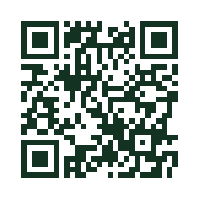Abstract
The history of philosophy presents a variety of viewpoints regarding the ontological primacy of either change or constancy. Some views regard change as foundational, to the point where constancy is denied (e.g. Heraclitus). Other views regard constancy as so important, that change becomes unthinkable (e.g. Parmenides). The apparent dialectical tension between the different conceptions demands an ontological clarification of these issues. This study illustrates and evaluates the relationship between change and constancy in the viewpoints of various philosophers and scientists throughout history. This is done by appropriating a reformational insight that change and constancy exist in cohesion. The study finds that the relationship between change and constancy is not dialectical, but rather one of integration, seated in irreducible primitive domains (modalities). The purpose of the article is twofold (1) to show that change and constancy cannot be reduced to one another but can only exist in a relationship of coherence and (2) to contribute a systematic clarification of framework change in terms of the relationship between change and onstancy on the ontological level.Copyright information
- Ownership of copyright in terms of the Work remains with the authors.
- The authors retain the non-exclusive right to do anything they wish with the Work, provided attribution is given to the place and detail of original publication, as set out in the official citation of the Work published in the journal. The retained right specifically includes the right to post the Work on the authors’ or their institutions’ websites or institutional repositories.
Publication and user license
- The authors grant the title owner and the publisher an irrevocable license and first right and perpetual subsequent right to (a) publish, reproduce, distribute, display and store the Work in any form/medium, (b) to translate the Work into other languages, create adaptations, summaries or extracts of the Work or other derivative works based on the Work and exercise all of the rights set forth in (a) above in such translations, adaptations, summaries, extracts and derivative works, (c) to license others to do any or all of the above, and (d) to register the Digital Object Identifier (DOI) for the Definitive Work.
- The authors acknowledge and accept the user licence under which the Work will be published as set out in https://creativecommons.org/licenses/by/4.0/ (Creative Commons Attribution License South Africa)
- The undersigned warrant that they have the authority to license these publication rights and that no portion of the copyright to the Work has been assigned or licensed previously to any other party.
Disclaimer: The publisher, editors and title owner accept no responsibility for any statement made or opinion expressed by any other person in this Work. Consequently, they will not be liable for any loss or damage sustained by any reader as a result of his or her action upon any statement or opinion in this Work.
In cases where a manuscript is NOT accepted for publication by the editorial board, the portions of this agreement regarding the publishing licensing shall be null and void and the authors will be free to submit this manuscript to any other publication for first publication.
Our copyright policies are author-friendly and protect the rights of our authors and publishing partners.

